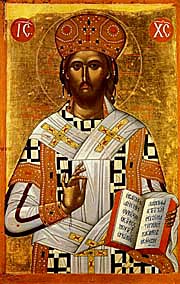The Institute for Christian Formation

Saint Josephine Bakhita, Virgin
Feast Day (optional memorial): February 8

Follow us on Facebook to keep up to date with our news and newest resources!


Some of our Saints, such as Saint Paul, whose conversion we celebrate on January 25th, lived in the early days of Christianity. And other Saints are from more modern times. Saint Josephine Bakhita is one of our “newer” Saints on our Universal Roman Calendar. Josephine was born around 1869 in the African country of Sudan, probably in the area around Darfur which is so much in the news these days. She was raised in the Islamic faith.
We don’t even know what Josephine’s real name was. She was captured and sold into slavery at a young age, probably around seven years old, and was given the name Bakhita, which means lucky one or fortunate one. As a
young girl, she was sold and resold in the slave markets of El Obeid and Khartoum, and endured all the hardships which human trafficking and slavery entails.
When she was about twelve years of age, Bakhita was bought by the Italian Consul Callisto Legnani, who was a good owner and treated her kindly. He brought her to Italy, where she was eventually sent to live with the Canossian Sisters in Venice. There she learned about the Christian faith. After spending time as a catechumen (someone preparing for baptism), she celebrated the sacraments of initiation (baptism, confirmation and Eucharist) on January 9th, 1890, and was given the baptismal name Giuseppina (Josephine in English). This experience was so powerful for her that she was
often seen kissing the baptismal font while exclaiming, “Here I became a daughter of God.” Josephine Bakhita joined this religious order, the Canossian Daughters of Charity, and professed her religious vows on December 8, 1896. For years in this religious order she served in various ways such as cooking, sewing, and greeting people at the door.
Click on the image above to download our ICF handout on Saint Josephine Bakhita.
Josephine Bakhita died a natural death from a painful disease on February 8, 1947. Her last words were, “Our Lady! Our Lady!” She was invoking Mary, the Mother of Jesus.
On May 17, 1992 Pope John Paul II beatified Josephine Bakhita. On October 1st, 2000, he canonized her. She is our first Sudanese Saint, and is patron of Sudan. Her feast (optional memorial) is February 8th.
The Canossian Sisters, the religious order to which Josephine belonged, have a brochure on Saint Josephine Bakhita that you can download which includes information about her life, some of her quotes, and prayers.
You can visit the Vatican’s web site to read another biography of Saint Josephine Bakhita.
Due to the years young Bakhita spent enduring the mistreatment and injustice of slavery, she is often invoked in intercessory prayer to end slavery and human trafficking. The U.S. Conference of Catholic Bishops (USCCB) Committee on Migration has designated February 8 (feast of St. Josephine Bakhita ) as an annual day of prayer for survivors and victims of human trafficking. Josephine Bakhita was kidnapped as a child and sold into slavery in Sudan and Italy. We are all called to help stop the evil of slavery and human trafficking. One way to do this is to “Become a Shepherd” (Stop Human Trafficking and Exploitation, Protect, Help, Empower, and Restore Dignity). You can find more information and a “Become a Shepherd Toolkit” at the USCCB web site.
The Bishops of England and Wales designate the feast of Saint Josephine Bakhita, February 8, as a day of prayer for victims of trafficking and those who work to combat it. View a brief video.
You can access Catholic Relief Services web page on Slavery and Human Trafficking here.
Bakhita’s life also is a source of inspiration for refugees and immigrants. The United States Conference of Catholic Bishops (USCCB) has a Josephine Bakhita prayer card, and she is also included in their “Justice for Immigrants” booklet of prayers.
Josephine’s slave name, Bakhita, means fortunate one. How fortunate we are to have such a wonderful role model!
